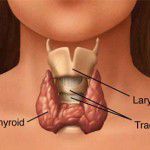Some women breeze through pregnancies with no trouble at all, or at least they weather the symptoms with few complaints. Some women, however, have a harder time of it. There are many reasons why you could have a difficult pregnancy (as in, one rife with negative stuff), such as twins or other physical issues, but doctors honestly don’t know what a lot of them are! Regardless of the why, here are some tips on the how of managing a difficult pregnancy.
Morning Sickness…Afternoon Sickness…Night Sickness…
Most of us experienced some nausea during our pregnancies; I know during my first, with my daughter, I felt like I was carsick all the time: completely and utterly miserable, the idea of food gagged me…but I couldn’t actually vomit, which might have brought on some relief. The only thing I could manage to eat were baked potatoes, with nothing on them but a little sour cream. Then, I hit the second trimester and it changed overnight, and I could eat whatever I wanted…and I did. With my sons, I had nothing but a little nausea, nothing serious. However, some women have a condition called hyperemesis gravidarum, where they can’t choke anything down for extended times, and it can extend throughout the pregnancy. This can be dangerous, because your body and that growing baby need lots of fluids and nutrients, and persistent nausea can mess with your electrolyte levels, leading to serious complications. How to deal with it?
See your doctor. He or she will probably try to let the nausea run its course for a little while, but if you’re unable to keep fluids down, persist and don’t let the doc blow off your symptoms. They will have to put you on IV fluids and nutrients for a little while, and may prescribe antiemetic drugs to see if that reduces the vomiting. Hyperemesis gravidarum usually resolves itself by 20 weeks.
Premature Labor
Some babies just want to come out early. Perhaps you have twins, or an “incompetent cervix” or are just prone too pre-term labor. You get confined to bedrest, maybe only a few months into your pregnancy. What do you do?
Keep busy, and obey the doctor. I know from experience, bedrest sucks. Sure, you think at first enforced naptime is awesome, but then the cabin fever sets in. You may get uncomfortable if you’re further along or carrying twins (amazing how lying down can cause the back and hips to ache). You begin randomly Googling your condition, then move on to the topic of problems in pregnancy, then into the scary realm of birth defects and such…and then you’re freaked out. The only thing to do is to give yourself something constructive to do.
- Write, read, sketch, try to work from home if you have that option.
- Limit your internet usage—ban sites on pregnancy and anything health-related.
- Do exercises for the bed-bound (approved by the doctor, of course), such as leg lifts, ankle circles, bicep curls, etc., to keep busy and keep fit.
- Pick up a new hobby that keeps your hands busy: cross-stitching, knitting, and crocheting are excellent; puzzles; you can even try your hand at making models, which your hubby and boy children would love to help with.
- Play games: keep your phone and laptop handy for solo gaming; invest in a deck of cards, a set of dominoes, and some board games to play with your family.
- Watch movies and TV—but try to keep it lighthearted.
Body Freak-Outs
This is a catch-all category that encompasses all manner of difficulties, such as:
Hemorrhoids
- Try to be careful when you go to the bathroom, meaning, don’t strain.
- Sit on a pillow (yes, you may need to invest in one of those donut pillows; all the moms will understand
- Sitz baths, hemorrhoid creams, and witch hazel soaked pads are all tremendous reliefs
- Lie on your left side with a pillow between your knees, or sit leaning to one side or the other, not directly on your rear end.
Acid Indigestion/Gas/Heartburn/Constipation
- It sounds like a simplistic suggestion, but it’s the most effective: don’t eat spicy foods or those that can cause indigestion, like too much citrus or acidic stuff like tomatoes or onions. Some women find that milk products aggravate their indigestion, too.
- For gas and indigestion, avoid too many high-fiber foods that may cause bloat and gas, such as broccoli and whole grain cereals, although these are good for helping with constipation.
- Don’t eat at night. When you eat and lie down acid can easily escape the stomach, owing to the hormones your body is secreting to relax your connective tissues.
- Take OTC remedies like Tums, which also give much-needed calcium
- Lie on your left side with a pillow between your knees. This not only improves circulation, it also helps with digestion.
- Lie on your back but with a pillow in the small of your back, propped up, so the excess acid doesn’t have the opportunity to use a prone position to creep up your esophagus.
 If you can only afford to purchase a few key items, stick with the essentials. You are going to be wearing these pieces for the next few months, so go for quality over quantity. (e.g. a great pair of jeans will be worn more times than you can count).
If you can only afford to purchase a few key items, stick with the essentials. You are going to be wearing these pieces for the next few months, so go for quality over quantity. (e.g. a great pair of jeans will be worn more times than you can count).





